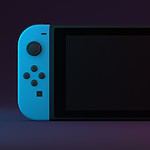Running a restaurant means keeping track of many customers. Finding the right customer relationship management system can make this job much easier. The best CRM for restaurants helps owners track customer data, manage reservations, and build loyalty programs that keep diners coming back.
Many top systems like Toast, SevenRooms, and Eat App offer features made just for food service businesses. These tools connect with point-of-sale systems to track spending habits and food preferences. Restaurant owners who pick the right CRM can turn first-time guests into regular customers while saving time on daily tasks.
1. Eat App CRM
Eat App is a powerful CRM solution for restaurants that helps manage customer relationships and streamline operations. It stands out as one of the top choices in the restaurant industry today.
The platform centralizes all guest data in one place, making it easier for restaurant owners to keep track of important customer information. This includes booking channels, reservation history, notes, tags, survey results, and even spend history.
Restaurant staff can easily track guests using preset or custom tags. This feature unlocks personalized marketing opportunities and helps create more meaningful connections with diners.
Table management is another strong point of Eat App’s CRM. The system helps restaurants organize seating arrangements efficiently, reducing wait times and improving the overall dining experience.
The intuitive interface makes Eat App accessible for restaurant teams of all technical skill levels. Staff can quickly learn the system and start using it effectively without extensive training.
Eat App combines reservation management with customer relationship tools. This integration helps restaurants provide better service by having complete guest information available when needed.
Many restaurant owners appreciate how Eat App helps them understand their customers better. By tracking preferences and visit history, restaurants can offer more personalized experiences.
The platform also offers marketing capabilities that help restaurants stay connected with guests. These tools make it easier to send targeted communications based on customer data.
Eat App is considered an all-in-one reservation platform that empowers restaurants to manage tables efficiently. Its comprehensive approach makes it a top contender among restaurant CRM systems.
For restaurants looking to improve guest relations and streamline operations, Eat App offers a balanced mix of features. The system continues to gain popularity among various types of dining establishments.
2. SevenRooms CRM
SevenRooms stands out as a CRM platform built specifically for hospitality. It goes beyond basic customer management tools by focusing on the unique needs of restaurants.
This system helps restaurants collect and connect guest data in meaningful ways. The platform makes it easier to track customer preferences, dining habits, and special occasions.
What makes SevenRooms different is its focus on personalization. Restaurants can use the stored information to create tailored experiences for guests when they return. This personal touch helps build stronger customer relationships.
The platform includes tools for both marketing and operations. Restaurant teams can use SevenRooms to bring in new customers while also keeping regulars happy. This balanced approach helps increase overall revenue.
SevenRooms allows restaurants to organize guest relationships at scale. Staff can quickly access guest profiles before they arrive, leading to better service and more personalized interactions.
The system also offers segmentation capabilities. This feature lets restaurants group customers based on various factors like visit frequency or spending habits. These segments make targeted marketing much more effective.
Many restaurant groups choose SevenRooms because it connects all locations. This gives businesses a complete view of guests across multiple venues or brands.
The platform automates many aspects of customer management. This saves staff time and reduces the chance of missing important guest details or preferences.
SevenRooms has earned recognition as one of the top restaurant CRMs. Their research team created comparison guides to help restaurants find the best solution for their specific needs.
Some major restaurant companies like Darden use SevenRooms. The platform offers them a centralized system for managing guest relationships across their various brands and locations.
Restaurant teams appreciate how SevenRooms integrates with other business systems. This connectivity creates a more complete picture of each guest and their preferences.
3. OpenTable CRM
OpenTable CRM helps restaurants turn first-time diners into loyal customers. It combines reservation management with tools to build stronger guest relationships.
The platform is well-known in the restaurant industry and has a large customer base. Many diners already use OpenTable to find and book tables, giving restaurants access to potential new customers.
With OpenTable’s guest relationship management platform, restaurants can track important customer information. This includes dining preferences, allergies, special occasions, and visit history.
The system makes it easy to recognize regular customers and provide personalized service. Staff can view notes about returning guests, helping them deliver better experiences.
Marketing tools are another strong point of OpenTable CRM. Restaurants can send targeted messages to different customer groups based on their past behavior.
The reservation system works smoothly with the CRM features. This creates a complete solution for managing both tables and customer relationships.
OpenTable offers personalized service options that help restaurants make guests feel special. Small touches like remembering birthdays or favorite dishes can turn occasional visitors into regulars.
Restaurants can also reward loyalty through the platform. Special offers or recognition for frequent diners helps build stronger connections.
The interface is user-friendly, making it accessible even for staff with limited technical skills. Training time is typically shorter compared to more complex systems.
OpenTable CRM competes directly with other platforms like Resy, but stands out for its large consumer network. More diners using the platform means more potential customers for restaurants.
The system provides useful data about dining patterns and customer preferences. This information helps restaurants make better business decisions.
While OpenTable offers strong marketing tools, it works best for restaurants focused on reservation-based dining rather than quick-service establishments.
4. Toast CRM
Toast CRM is a customer relationship management system designed specifically for restaurants. It combines with Toast’s POS system to create a powerful tool for managing guest relationships.
The integrated system automatically collects guest data whenever someone makes a purchase. This happens without extra work from your staff.
Toast CRM helps restaurants stay connected with their customers. You can send personalized emails and messages based on their dining history and preferences.
One big advantage of Toast’s restaurant CRM solution is how it tracks customer spending patterns. This lets you create targeted promotions that actually work.
The system also helps restaurants generate repeat visits. By tracking when customers last visited, you can send timely reminders or special offers to bring them back.
Toast CRM works well for restaurants of all sizes. Its scalable design means it can grow as your business expands.
Restaurants using Toast can run targeted social media campaigns. The system can even track which guests return after seeing your Facebook or Instagram ads.
The integrated guest CRM system provides valuable information for improving the overall dining experience. This helps build a loyal customer base.
While Toast is primarily known for its POS features, its CRM capabilities have become increasingly important. Restaurants can manage reservations and tables while collecting customer data.
Many restaurant owners appreciate how Toast combines multiple tools in one platform. This eliminates the need for separate systems that don’t talk to each other.
Toast CRM helps restaurants make smart decisions about menu items, promotions, and special events. The data shows what’s working and what isn’t.
Customer feedback can be collected and managed through the system. This gives restaurant owners direct insight into what guests truly think.
According to industry reviews, Toast ranks among the top restaurant CRMs available today. Its all-in-one approach makes it particularly appealing to busy restaurant operators.
5. Resy CRM
Resy offers more than just reservation management for restaurants. It’s a comprehensive restaurant management platform that helps businesses improve their operations and guest relationships.
With Resy, restaurants can collect valuable customer data each time someone makes a reservation. This information includes dining preferences, special occasions, and visit history.
The platform helps reduce no-shows by sending automated reminders to guests. This feature alone can save restaurants thousands in potential lost revenue.
Resy’s CRM capabilities allow staff to add notes about customer preferences. Did someone mention they prefer a quiet corner table? This information stays in the system for future visits.
Restaurant owners can use Resy to track regular customers and create targeted marketing campaigns. This personalized approach helps build loyalty and encourages repeat business.
The streamlined operations offered by Resy mean staff can focus more on guests and less on administrative tasks. The interface is user-friendly and doesn’t require extensive training.
Multi-location restaurant groups benefit from Resy’s ability to maintain customer profiles across different venues. A regular at one location will be recognized when they visit a sister restaurant.
Unlike some competitors, Resy was built specifically for the restaurant industry. This focus shows in features designed to address common pain points in food service businesses.
The platform integrates with other restaurant technology, creating a more connected system. This reduces the need to switch between multiple apps or programs during service.
Restaurants can use Resy’s data to identify trends in their business. Which days are busiest? What menu items get the most special requests? This information guides better business decisions.
While Resy may not be the oldest player in the restaurant CRM field, it has quickly gained popularity among both independent restaurants and larger groups looking for modern solutions to guest management challenges.
6. Tock CRM
Tock CRM offers restaurants a comprehensive solution for managing guest relationships and reservations. It gives restaurant owners access to valuable guest data like dietary restrictions, personal notes, special occasions, and visit history.
This platform helps restaurants streamline their booking process while building meaningful connections with guests. The system is designed to enhance the dining experience through better guest management.
Tock’s reservation system elevates dining experiences by making it easier for restaurants to handle bookings efficiently. Restaurant staff can focus more on providing excellent service rather than managing complicated scheduling systems.
For larger restaurant groups, Tock offers enterprise-level management software that consolidates systems and helps control costs. This makes it ideal for businesses with multiple locations needing centralized management.
The platform stands out for its ability to capture detailed customer information. Restaurants can use this data to create personalized experiences for returning guests, increasing loyalty and repeat business.
Tock also supports event management, making it useful for restaurants that host special dining events or private parties. This feature expands revenue opportunities beyond regular service hours.
The user interface is clean and intuitive, allowing staff to quickly learn and implement the system. This reduces training time and helps restaurants maintain consistent service standards.
Pricing for Tock varies based on restaurant size and needs. While not the cheapest option available, many restaurants find the investment worthwhile due to the platform’s comprehensive features.
Mobile accessibility allows managers to check reservations and guest information on the go. This flexibility helps restaurant teams stay organized even when away from the host stand.
Integration capabilities with other restaurant management tools make Tock a versatile addition to existing tech stacks. This helps create a more seamless operation across all aspects of restaurant management.
7. NCR Silver
NCR Silver is a point of sale system designed for restaurants and businesses. It offers more than just basic POS functions, with features that help manage customer relationships.
The system includes a built-in loyalty program that restaurants can use to track customer preferences and buying habits. This feature makes NCR Silver useful as a basic CRM tool for smaller restaurant operations.
Restaurant owners appreciate NCR Silver’s tablet-based interface. The mobile-friendly design lets staff take orders and process payments from anywhere in the restaurant, improving service speed and efficiency.
Customer feedback on NCR Silver is mixed. While some praise its user-friendly interface, others mention concerns about the three-year commitment required by the company.
Pricing for NCR Silver is quote-based, which means restaurants need to contact the company directly for cost information. This quote-based pricing approach can make it difficult for small restaurants to quickly compare costs with other CRM options.
The system offers several helpful restaurant-specific features. These include table management, menu customization, and employee scheduling tools that integrate with its CRM capabilities.
For multi-location restaurants, NCR Silver provides consolidated reporting across all sites. Managers can view customer data from different locations in one dashboard, helping identify trends and opportunities.
The parent company behind NCR Silver, NCR Voyix, focuses on restaurant technology solutions. This specialization means the system is built with specific restaurant needs in mind.
Restaurants considering NCR Silver should weigh the benefits of its industry-specific features against the long-term contract requirements. The system works best for establishments seeking an all-in-one solution that combines POS and basic CRM functions.
8. Popmenu CRM
Popmenu CRM helps restaurants build stronger relationships with their guests. This tool goes beyond basic customer management by focusing on turning first-time diners into regular customers.
One of the standout features is the interactive website that improves Google traffic and promotes special events. Restaurant owners can track guest preferences, making it easier to create targeted marketing campaigns.
Popmenu pays for itself quickly. About two-thirds of their clients earn enough to cover their annual subscription in just three months, showing its value to restaurant owners.
The platform helps restaurants own their guest relationships more effectively than traditional methods. This ownership of customer data gives restaurants more control over their marketing efforts.
Popmenu integrates with other restaurant tools to save time and increase order accuracy. These connections with other systems help create a smoother workflow for restaurant staff.
The system is designed with mobile users in mind. This makes sense since most customers use their phones to find restaurants, read menus, and place orders.
Popmenu CRM is part of a larger suite of restaurant technology solutions aimed at improving digital presence. The company understands that online visibility is crucial for modern restaurants.
Restaurant owners using Popmenu can expect increased order accuracy along with additional revenue opportunities. The platform creates multiple ways to boost profits beyond just managing customer information.
Unlike some competitors, Popmenu focuses on optimizing a restaurant’s complete digital presence. This broader approach helps create a consistent experience for customers across all online touchpoints.
The system also tracks important guest data that helps restaurants create more personalized experiences. This personal touch can make the difference in turning occasional visitors into loyal customers.
9. Upserve CRM
Upserve CRM gives restaurant owners powerful tools to track and understand customer behaviors. It’s now known as Lightspeed Restaurant (U-Series), following a brand transition.
This platform stands out by focusing directly on restaurant needs. Unlike general CRMs, Upserve captures food preferences, visit patterns, and spending habits specific to dining establishments.
Restaurant managers can use Upserve to create customer profiles with important details. These profiles track ordering history, favorite dishes, and special occasions to help staff provide better service.
The system works well for analyzing customer data. Restaurants can gain valuable insights through this analysis and create messages that connect with specific customer groups.
As a cloud-based solution, Upserve works for both single locations and restaurant groups with multiple sites. Staff can access customer information from anywhere with internet connection.
The platform helps restaurants turn first-time visitors into regulars. By tracking what brings customers back, businesses can focus their marketing efforts more effectively.
Upserve CRM integrates with its POS system to capture data automatically. This saves staff time and ensures more accurate information collection without extra work.
One key benefit is the ability to spot trends in customer behavior. Restaurants can see which menu items bring people back and identify their most valuable customer segments.
The system also helps with targeted promotions. Restaurants can send personalized offers based on past ordering habits, increasing the chances customers will respond positively.
For restaurants wanting to improve their Facebook Ads tracking, Upserve provides integration options that help measure marketing effectiveness.
Upserve’s design focuses on boosting restaurant profits through better customer relationships. The system helps restaurants recognize VIPs, remember preferences, and create memorable experiences.
10. SugarCRM
SugarCRM is a versatile platform that can be adapted for restaurant management needs. While not specifically designed for restaurants, it offers customizable features that can be tailored to track customer preferences and dining habits.
Restaurant owners appreciate SugarCRM’s ability to manage customer relationships across multiple locations. The platform helps staff remember regular customers’ favorite dishes and special requests, creating more personal dining experiences.
SugarCRM provides strong marketing automation tools that restaurants can use for promotion campaigns. These tools help restaurants stay connected with customers through targeted emails about special events or new menu items.
The system is known for its flexibility but requires some technical knowledge to set up properly for restaurant use. Smaller restaurants might find SugarCRM’s learning curve steeper compared to industry-specific alternatives.
Pricing for SugarCRM tends to be higher than some restaurant-focused CRMs. The platform is recognized for its advanced features, which may exceed what many restaurants require.
Restaurant managers benefit from SugarCRM’s robust reporting features. These tools help track which promotions drive the most business and identify trends in customer ordering patterns.
For growing restaurant chains, SugarCRM offers scalability that can accommodate expansion. The system grows alongside the business without requiring a complete platform change.
Integration capabilities allow SugarCRM to connect with reservation systems and POS software. This creates a more complete view of customer interactions across all restaurant touchpoints.
SugarCRM has earned recognition as a top CRM provider with comprehensive features. However, restaurants should consider whether this powerful but complex system matches their specific needs.
For smaller restaurant operations with limited staff, Sugar Essentials offers a more accessible entry point. This version provides core functionality for teams of 3-5 users without overwhelming complexity.
Key Features to Look for in a CRM for Restaurants
A good restaurant CRM should help you track customer preferences and boost loyalty while making daily operations smoother. The right features can transform how you connect with guests and manage your business.
Table Management Capabilities
Restaurant CRMs with strong table management features help staff organize seating efficiently and reduce wait times. These systems show real-time table availability across your restaurant floor.
Look for systems that allow hosts to:
- Track average dining times
- Manage reservations easily
- Set up wait lists with automated text notifications
- Remember guest seating preferences
Advanced table management tools can predict busy periods based on past data. This helps you schedule staff more effectively and prepare for rush hours.
Some systems even let guests choose their preferred tables when making reservations online. This small touch improves the dining experience before customers even arrive.
The best CRMs connect table data with customer profiles, so servers know if they’re serving regulars or first-time visitors.
Integration With POS Systems
A restaurant CRM must integrate seamlessly with your POS system to provide complete customer insights. This connection lets you track spending habits, favorite dishes, and visit frequency automatically.
Key benefits of good POS integration include:
- Automatic customer profile updates with each purchase
- Ability to offer personalized promotions based on order history
- Streamlined loyalty programs that track points without extra steps
- Easy transfer of checks between servers or tables
When your CRM and POS work together, servers can see valuable information like allergies or birthdays directly at the point of sale. This creates opportunities for personalized service moments.
Your marketing team benefits too. They can create targeted campaigns based on what customers actually order, not just guesses.
Make sure the CRM you choose works with your existing POS or offers an easy migration path.
Customer Feedback Tools
Effective feedback collection features help restaurants quickly identify problems and celebrate successes. Modern CRMs offer multiple ways to gather guest opinions.
Top feedback tools include:
- Post-dining email or text surveys
- QR codes on receipts linking to quick feedback forms
- Social media monitoring to catch mentions of your restaurant
- Sentiment analysis to categorize feedback automatically
The best systems alert managers to negative feedback immediately. This allows for quick recovery before unhappy customers share bad experiences online.
Look for CRMs that make responding to feedback simple. Staff should be able to thank happy customers or address concerns with just a few clicks.
Many systems also create reports showing trends in customer satisfaction. This helps you spot recurring issues that might be hurting your business over time.
How CRM Benefits Restaurant Operations
Restaurant CRM systems transform daily operations by connecting staff with valuable customer data and automating key marketing tasks. These tools help restaurants build stronger relationships while saving time on promotional activities.
Enhancing Customer Relationships
A restaurant CRM consolidates key customer data in one place, making it easy for staff to access important information. This includes dietary preferences, birthdays, and visit history.
Servers can greet regulars by name and recall their favorite dishes, creating a personalized experience. This attention to detail makes guests feel valued and more likely to return.
CRM systems track spending patterns, helping restaurants identify VIP customers who deserve special attention. For example, a hostess might save a premium table for a guest who typically orders expensive wine.
Some CRMs enable text or email follow-ups after visits to gather feedback and show customers they matter. These small touches build loyalty over time and turn casual diners into regular patrons.
Streamlining Marketing Efforts
Restaurant CRMs make marketing much easier by providing clever tools to personalize every interaction. They segment customers into groups based on visit frequency, spending habits, or menu preferences.
With these segments, restaurants can send targeted promotions:
- Happy hour specials to after-work crowds
- Kids-eat-free offers to families
- Wine tasting invites to customers who order premium bottles
Automated marketing features handle birthday emails, anniversary offers, and win-back campaigns for lapsed customers. This happens without staff lifting a finger, saving valuable time.
CRMs measure campaign results, showing which promotions drive actual visits. This data helps restaurants focus on what works and stop wasting money on ineffective marketing.
Frequently Asked Questions
Restaurant owners have many questions about choosing the right CRM system. Let’s address some common concerns about restaurant CRM features, options, and benefits.
What features should a good CRM for restaurants offer?
A good restaurant CRM should include customer profile management to track preferences and dining history. This helps staff provide personalized service that keeps guests coming back.
Look for marketing tools like email campaigns and automated birthday messages that help maintain customer relationships. These features can increase your restaurant sales through targeted promotions.
The best CRMs also offer reservation management, loyalty programs, and analytics to track customer behavior. Integration with your POS system is crucial for capturing transaction data automatically.
Are there any CRM systems tailored specifically for small to medium-sized restaurants?
Yes, several CRMs cater specifically to small and medium restaurants. Toast CRM works well for smaller operations with its user-friendly interface and affordable pricing tiers.
Eat App CRM offers scalable options that grow with your business. Their small business packages provide essential features without overwhelming costs.
When selecting a system, define your specific goals first. Ask yourself what problems you’re trying to solve before committing to any platform.
How does integrating a CRM benefit a restaurant’s customer service and sales?
A restaurant CRM helps staff recognize returning customers and remember their preferences. This personal touch makes guests feel valued and encourages repeat visits.
CRMs can identify your most valuable customers, allowing you to focus retention efforts where they matter most. This targeted approach is more effective than general marketing.
Restaurants using CRMs can also counter business ebbs and flows by analyzing slow periods and creating promotions to drive traffic during those times.
What are the top-rated CRM platforms currently being used in the restaurant industry?
SevenRooms CRM leads the industry with its comprehensive guest management system. It excels at capturing detailed guest preferences and spending habits.
OpenTable CRM remains popular for its powerful reservation system combined with customer tracking. Many restaurants appreciate its wide consumer reach.
Resy CRM has gained significant market share with its intuitive interface and strong mobile capabilities. Its waitlist management features are particularly praised by busy venues.
Can a CRM help with managing reservations and customer relationships in a restaurant?
Absolutely. Modern restaurant CRMs centralize reservation management while building customer profiles. This dual functionality eliminates the need for separate systems.
When a guest makes a reservation, the CRM captures their information and preferences. Each time they return, staff can access this data to provide consistent, personalized service.
Some systems like OpenTable and Resy also offer public-facing reservation platforms that bring in new customers while feeding data to your CRM.
What should one consider when choosing a CRM solution for a restaurant with multiple locations?
Multi-location restaurants need CRMs with strong central management capabilities. Look for platforms that offer unified customer databases across all locations.
Consider how the CRM handles different menu items, pricing, and promotions at each location. The system should allow both centralized control and location-specific customization.
Data security becomes even more important with multiple locations. Make sure the CRM you choose follows a logical, straightforward approach to protecting customer information while making it accessible to the right staff.







